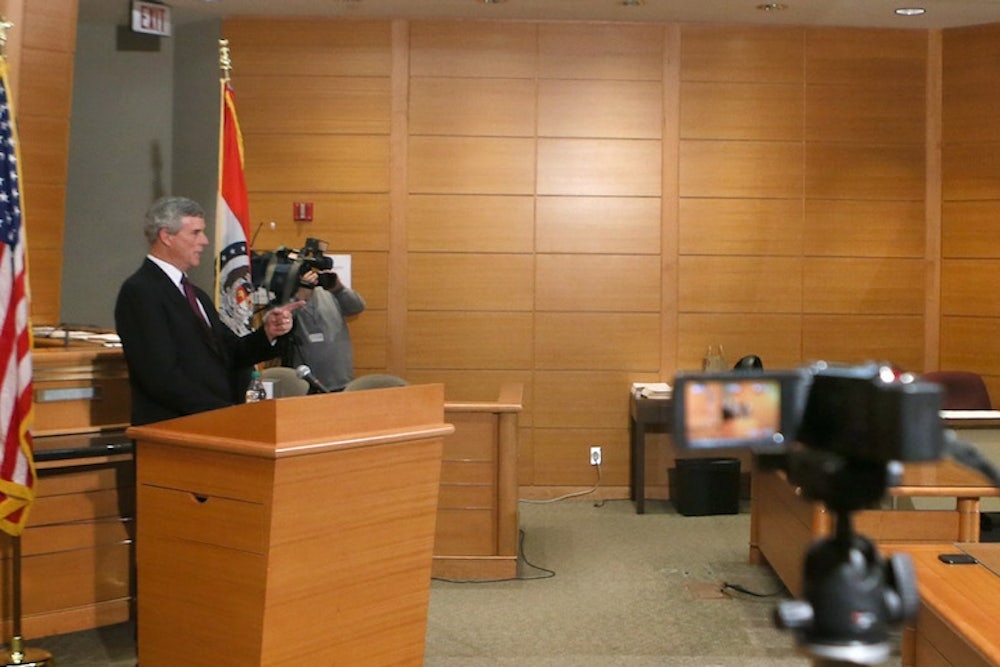Michael Brown charged Officer Darren Wilson's car. Or maybe he didn't.
Wilson didn't fire his gun at Brown while Brown was on the ground. Or maybe he did.
Brown was looking at Wilson when he was shot and had his hands in the air, although neither things are quite certain.
If you were sitting on the grand jury considering what happened on August 9, in Ferguson, Missouri, this is what you heard from witnesses. On some issues, opinon was divided. On others, most witnesses agreed, although on virtually no question was opinion unanimous.
The amazing chart below, put together by the staff of PBS Newshour, shows it all:

The chart doesn't say which witnesses had what kind of perspective. That's important information because, presumably, somebody standing further away could see less than somebody standing up close. It also doesn't show how the witness accounts line up with physical evidence, which, according to prosecutor Robert McCulloch, contradicted what some people said they saw.
But these inconsistencies shouldn't surprise anybody. As Paul Campos, a law professor at the University of Colorado-Boulder, explains at Salon, eyewitness tesitmony is notoriously unreliable:
...Defendants who testify in criminal proceedings have the strongest possible motives to cast their own actions in the most positive light. Other witnesses to the shooting no doubt have their own biases – as the racist remarks in the journal of the witness whose account is most favorable to Wilson’s story illustrates – but even aside from conscious or unconscious bias, a host of psychological factors make eyewitness testimony far from reliable.
The easiest way to sum up those factors is this: People are as a general matter actually quite bad at recalling accurately what they’ve witnessed, and, worse yet, they (we) tend to have great confidence in our ability to recall events accurately. More perversely still, people attempting to judge the credibility of eyewitnesses put great stock in the level of confidence a witness displays in regard to the accuracy of the witness’s recall, even though experimental psychology has demonstrated that there is no correlation between such confidence and accurate recall.
Many other factors conspire to make eyewitness testimony unreliable: confirmation bias leads us to see what we expect to see, even if it isn’t actually there, while misinformation effects produce false memories of things that never happened. A famous example of the latter is a Dutch psychology experiment in which more than half of the subjects recalled seeing film footage of an airliner crashing into a building, after researchers referenced the footage in interviews with the subjects. Although the plane crash was a real event that the subjects all recalled vividly, no footage of the crash ever existed.
Say what you will about McCulloch—and I've said plenty—but posting all of the evidence online is giving us a great opportunity to reexamine the case. It's a ton of material, and it's going to take at least a few more days for everybody to analyze it. Once that process is done, however, we may have a much better sense of what the evidence really shows.
